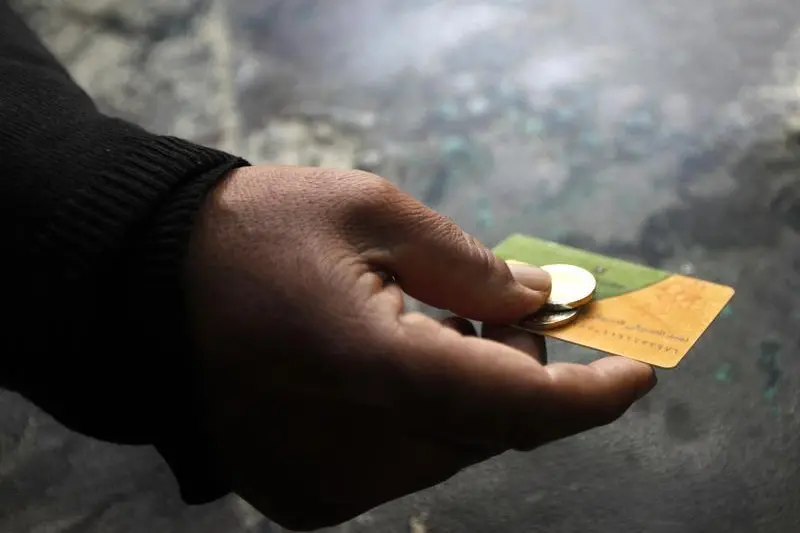PHOTO
Samia Fakhry talks to Tarek Mahfouz, executive director of Visa Egypt, about Egypt's burgeoning e-economy
Egypt has signed many deals with international credit card companies in order to increase online payments and reduce the need for cash transactions. One outcome of this has been that government employees will be able to receive their salaries electronically, a step that will boost their ability to shop and pay bills online. Another is that clients of the Social Fund for Development (SFD) will be encouraged to market their products online.
But there are also other benefits of cashless transactions and the e-economy, as Tarek Mahfouz explained.
What motivates the current expansion in the use of credit and debit cards in Egypt?
In 2013, a study conducted by Visa International found that Egypt was ahead of the region in online trade, which was estimated at $3.2 billion in 2011. But the Middle East and North Africa (MENA) region is a fast-growing market for online trade in general, and as the number of users of smartphones and the Internet increases this trend is going to become more pronounced.
Credit and debit cards are used for a broad spectrum of transactions that go through the banking system. Because banks are our main clients at Visa International, we offer them maximum support. We are particularly interested in offering up-to-date technology to the banks so that they can offer a more effective service to the Egyptian market in a manner comparable to international standards. The government in Egypt is making a big push for e-payments, both with regard to payments to its own employees and the collection of customs and tax revenue by people using smart cards. So there will be more online activities regarding both government expenditure and revenues.
What is the action plan of most credit card companies in the Egyptian market?
The companies aim to provide the best service they can to the banks who are their main clients. In general, the companies keep a close eye on the economy as a whole, rather than on minor indices. E-payments matter to us in two ways. One is that we aim to promote cashless transactions. And the other is to integrate Egypt's parallel economy into the formal economy, something which can boost the country's GDP. Egypt's parallel economy is almost equal in size to the country's formal economy. This, after all, is a country that raised billions of pounds within eight days to finance the New Suez Canal, helping to finish the project in record time.
The more people use smart cards, the more chance there is of integrating the informal economy into the banking system. When you reduce the need for cash, you help the economy grow faster. A study conducted in Europe in 2014 showed that an increase in online banking by about 124 billion euros led to a rise of one per cent in GDP.
Does online banking help small and medium-sized enterprises?
A good example in reply to this question is the cooperation agreement my company has with Egypt's SFD that gives small-business entrepreneurs who may have trouble selling their products elsewhere a chance to market them online. A Website has been designed to allow entrepreneurs access to e-marketing, thus making it easier for them to sell their products and collect money instantly.
Also those borrowing from the SDF are entitled to get their own credit and debit cards issued through the National Bank of Egypt. With such cards, entrepreneurs find it easier to run small businesses. Medium-sized, small, and micro projects are the trend of the future. They are the mainstays of the economy as they offer services to larger industries in a manner that helps the economy.
With the upturn in the economy in Egypt, do you see a need to issue special credit and debit cards?
It is clear that the government will be introducing more online transactions, both for its own payments and for collecting its dues, such as taxes. Government contractors will also be paid online, which will open new opportunities for specialised cards to be issued to various groups that make transactions with the government, either through payments or the collection of funds. This will generate a greater use of cards and will also allow the government to build a database of its clients.
Prepaid cards are also useful. You can pay anything with prepaid cards, including taxes, customs, traffic fines, electricity and phone bills, and cable subscriptions. With one card, you can settle bills or buy goods and services online. We can also issue special cards whenever the need arises. For example, we now have a project with the postal service involving the provision of prepaid cards. Any member of the public will be able to buy a card from the post office and use it to carry out a wide range of transactions, such as transferring money locally and paying college tuition fees.
© Al Ahram Weekly 2015





















